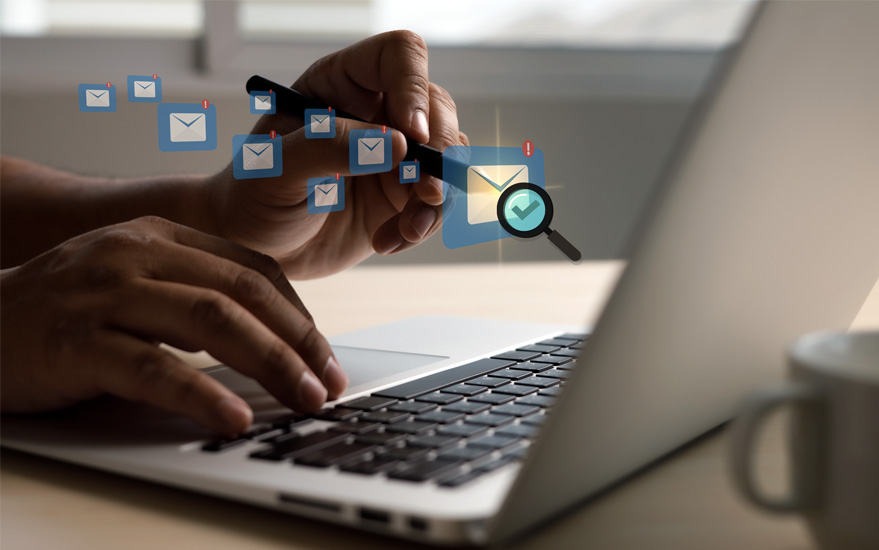Email communication has been the lifeblood of almost every modern business, meaning archiving emails is critical for maintaining regulatory compliance. You may face substantial legal and financial consequences if you skip this step.
But, in the famous words of Douglas Adams: Don’t panic! Navigating the maze of email archiving isn’t as terrifying as it sounds.
Here are some helpful hints and resources to help you stay on the right side of compliance without losing your head.
Understanding the Need for Email Archiving
Email archiving is essentially the ultimate digital file system for emails. It’s not just about email-based data conservation but also about capturing and storing them in a highly secure, easily searchable format.
Imagine you have a magical filing cabinet that keeps your emails secure and organizes them so you can find any email quickly and without hassle.
These benefits are highly significant in terms of legal compliance and audits. Instead of sifting through a messy pile of old emails, you have everything nicely organized and ready to go whenever needed.
Why Legal Compliance Matters
The modern data-driven world is packed with red tape and regulations, so businesses must navigate a slew of standards governing how long they should store emails and how to manage them in a way that complies with rules and regulations.
GDPR in Europe and HIPAA in the United States have very rigorous standards about how long data should be retained and secured. If you do not follow these regulations, you risk receiving a hefty fine or perhaps legal action.
This is precisely why deploying a robust email archiving strategy is not just a good idea but a must.
Key Components of an Effective Email Archiving Strategy
The three vital components of an effective email archiving strategy include:
Retention Policies
Set clear retention regulations that stipulate how long emails should be preserved. This varies by industry and legislation, so design your rules accordingly. For example, financial firms may need to keep emails for seven years, whereas healthcare companies may have different standards.
Automated Archives
Automate the archiving process to reduce human mistakes and maintain consistency. Automated solutions catch emails in real-time, so nothing falls through the cracks. This saves time and guarantees compliance.
Search and Retrieval
A good archiving system should have strong search capabilities. When regulators come knocking, being able to swiftly recover the necessary emails can mean the difference. Look for solutions that have extensive search tools like keyword searches and filtering by date or sender.
Best Practices for Email Archiving
Regular Audits
Audits should be performed on a regular basis, similar to a doctor’s check-up. Ensure your email archiving technology is running correctly and your retention regulations are followed. These check-ups help you identify any compliance issues before they become major problems, allowing you to address them on time.
User Training
User training is vital, so educate your employees on the importance of email archiving solutions and how to maintain compliance. When everyone understands the risks, the odds of making a mistake that gets you in trouble are significantly reduced.
Data Security
To ensure data security, encrypt your preserved emails with extreme caution. Use encryption and access controls to protect critical information.
Common Pitfalls to Avoid
Neglecting Updates
Using out-of-date archiving software is equivalent to leaving your house unlocked as it attracts vulnerabilities and non-compliance issues. Keep your software up to date to take advantage of the latest security fixes and regulatory changes.
Ignoring Non-Email Data
Modern communication is no longer limited to emails. Your archiving solution should be as adaptable as a Swiss Army knife, handling anything from instant messages to social network posts. These types of digital chatter are also scrutinized for compliance, so ensure that your solution covers all bases.
Navigating Legal Requirements Globally
Let’s take this scenario as an example.
Each country attends the party with its own set of rules. In Europe, GDPR reigns supreme, requiring exceptional privacy protection. Meanwhile, across the pond in the United States, the Sarbanes-Oxley Act promotes financial transparency.
For large multinational corporations, it’s like learning the house rules at every poker game: adjusting techniques globally keeps everyone in the loop and emails neatly filed away.
Case Studies: Success Stories in Email Archiving Compliance
Imagine a large bank that implemented an extremely smart email archive system and moved from dragging its feet to lightning-fast when audits arrived.
Then there’s the healthcare team that transitioned to a cloud-based solution, keeping things incredibly safe and legal under HIPAA while making their data easier to access. These successes demonstrate how much a smart email archiving system can pay off in the real world.
Staying Ahead: Continuous Improvement and Adaptation
To stay ahead of the competition by focusing only on what brings revenue to your business, you must keep your email archiving policy sharp and up to date.
That includes keeping up with new regulations and technological advancements. Stay on top of your game by participating in industry forums, attending webinars, and chatting with experts. Staying agile ensures that your email archives remain both functional and completely compliant.
Over to You
Email archiving for legal compliance is a must on your to-do list and a crucial strategic decision to protect your company and negotiate the complicated legal landscapes that define your industry.
Understanding the significance of email archiving, applying best practices, and selecting appropriate solutions can assure compliance and peace of mind. So, take advantage of the chance and invest in a dependable email archiving solution today. Your future self will thank you for preventing any problems.
